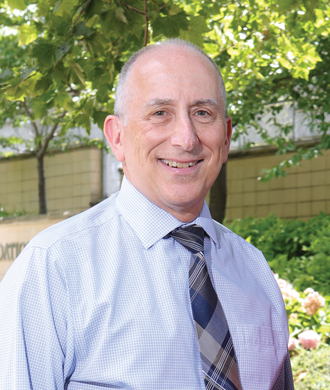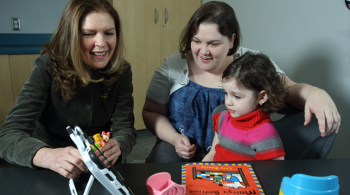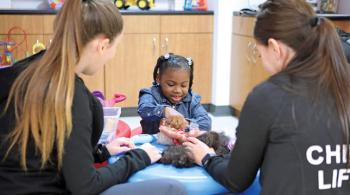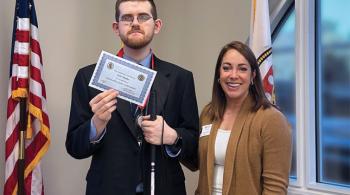
Since 2017, every patient 8 years old or older who comes to Kennedy Krieger Institute for a medical appointment has been asked the same four questions: In the past few weeks, have you wished you were dead? Have you felt you or your family would be better off if you were dead? Do you think about killing yourself? Have you ever tried to kill yourself?
Close to 30,000 patients at Kennedy Krieger have been screened for suicide risk with these simple but critical questions. Just under 8% have answered “yes” to one or more of the questions. Of them, 2.5% have been referred to acute psychiatric care.
This screening is as important as any other health screening that we do.” – Dr. Paul Lipkin
Screening patients for thoughts of suicide is important because many children and teens with intellectual or neurodevelopmental disorders are at an increased risk for having suicidal thoughts and behaviors, says Dr. Paul Lipkin, a neurodevelopmental pediatrician with the Institute’s Center for Development and Learning.

Dr. Paul Lipkin
Kennedy Krieger began screening patients in response to a growing awareness that the nation’s children and teens were increasingly experiencing suicidal thoughts. “Hospitals were starting to screen for suicidality, and we believed we could serve our outpatients in a similar way,” Dr. Lipkin explains.
The questions were developed by the National Institute of Mental Health, with which Kennedy Krieger has collaborated on this effort. For patients answering “yes” to any of the questions, a clinician performs a suicide safety assessment, and the patient’s care team develops an appropriate mental healthcare plan.
“Our staff members recognize that suicidal thoughts and behaviors are medical issues that can have serious health consequences to the child,” Dr. Lipkin adds. “This screening is as important as any other health screening that we do.”
This past July, Kennedy Krieger hosted Maryland’s first Youth Suicide Prevention Summit in collaboration with the Maryland Chapter of the American Academy of Pediatrics. Fifty key leaders in healthcare from across the state collaborated on how to better prevent youth suicide.
“It’s only by being open to talking about suicide that we can identify children who need our help and get them the care they need,” says Dr. Suzanne Rybczynski, the Institute’s former associate chief medical officer, who organized the summit. “Suicide prevention is the goal, because every suicide is a tragedy and a huge loss for all of us.”















